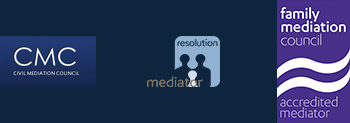When parents separate, child maintenance is a key issue that needs to be addressed, even in shared care situations. But what happens when you split care equally—do you still have to pay? In the UK, child maintenance payments may still be required even if both parents are sharing responsibility for their children equally. This article by the team at Hampshire Mediation seeks to explore how child maintenance works with shared care, and presents a worked example to illustrate how it all comes together.
What Is Shared Care?
Shared care refers to a situation where both parents take an active role in the upbringing of their children after separation, with the child spending time in both their homes. However, shared care doesn’t always mean an exact 50/50 split of time. In fact, the time each parent spends with the child can vary significantly and this is something we often discuss in family mediation.
In the UK, even with shared care, one parent is typically required to pay child maintenance, although the amount is adjusted depending on how much time the child spends with each parent. The Child Maintenance Service (CMS) oversees this and uses a formula to calculate how much the “paying parent” should contribute.
How Is Child Maintenance Calculated in Shared Care?
The CMS looks at two key factors:
- Gross income: Child maintenance is calculated based on the paying parent’s gross income (income before tax and national insurance deductions).
- Number of nights spent with each parent: The amount of maintenance is reduced based on the number of nights the child spends with the paying parent.
The CMS uses the following formula for nights per year the child spends with the paying parent:
- 52–103 nights per year: 1/7 reduction
- 104–155 nights per year: 2/7 reduction
- 156–174 nights per year: 3/7 reduction
- 175+ nights per year: 50% reduction plus an extra £7 reduction.
Let’s see how this works with an example.
Worked Example: A Father with Two Children, 50% Care, and £3,000 Gross Income
Let’s take an example of a father, John, who has two children and shares care equally with his ex-partner, meaning the children spend 50% of their time with each parent. John’s gross income is £3,000 per month, or about £36,000 a year. He has no other children for whom he is responsible.
We’ll walk through how his child maintenance would be calculated based on this setup.
- Step 1: Calculate John’s weekly gross income
- John’s gross monthly income is £3,000, so his weekly income is calculated as:
- £3,000 per month × 12 months = £36,000
- Divided by 52, this makes £692.31 per week.
- John’s gross monthly income is £3,000, so his weekly income is calculated as:
- Step 2: Apply the basic child maintenance formula
- For two children, the CMS uses 16% of the paying parent’s gross weekly income; for one child it is 12% and for three or more it is 19%. So, the basic maintenance John would owe without any adjustments for shared care is:
- £692.31 × 16% = £110.77 per week
- Step 3: Adjust for shared care
- Since John has 50% shared care (approximately 182 nights per year), his maintenance payments are subject to a 50% reduction, plus an extra £7 per week, per child, or £14 in total. This is because the children spend equal time with both parents.
- £110.77 × 50% = £55.39 per week
- £55.39 – £14 = £41.39 per week
- Since John has 50% shared care (approximately 182 nights per year), his maintenance payments are subject to a 50% reduction, plus an extra £7 per week, per child, or £14 in total. This is because the children spend equal time with both parents.
- Step 4: Calculate the monthly child maintenance payment
- To find the monthly payment, simply multiply the weekly amount by 52 weeks and divide by 12 months:
- £41.39 × 52 = £2,152.28 per year, or £179.36 per month
- To find the monthly payment, simply multiply the weekly amount by 52 weeks and divide by 12 months:
Final Outcome for John
Despite having shared care with his ex-partner and the children spending roughly equal time with each, John would still be asked to pay approximately £180 per month in child maintenance, as his gross income is factored into the calculation. This is to ensure that the children are financially supported in both households, reflecting the shared costs but unequal resources.
Why Is Child Maintenance Needed Even in Shared Care?
The principle behind child maintenance is that both parents should contribute to the financial needs of their children. Even if time is shared equally, one parent may earn much more than the other and the CMS aims to ensure that the child’s standard of living is balanced across both households. In John’s case, while he shares care equally, he still has to make payments to cover a portion of the children’s expenses, reflecting his higher income.
Need help calculating your payments? Check out the UK Government’s Child Maintenance Calculator.
This worked example illustrates how child maintenance is calculated in shared care situations in the UK. It should not be taken as an accurate forecast of a real-world situation, and the exact position and any liability should be checked with the Child Maintenance Service.


